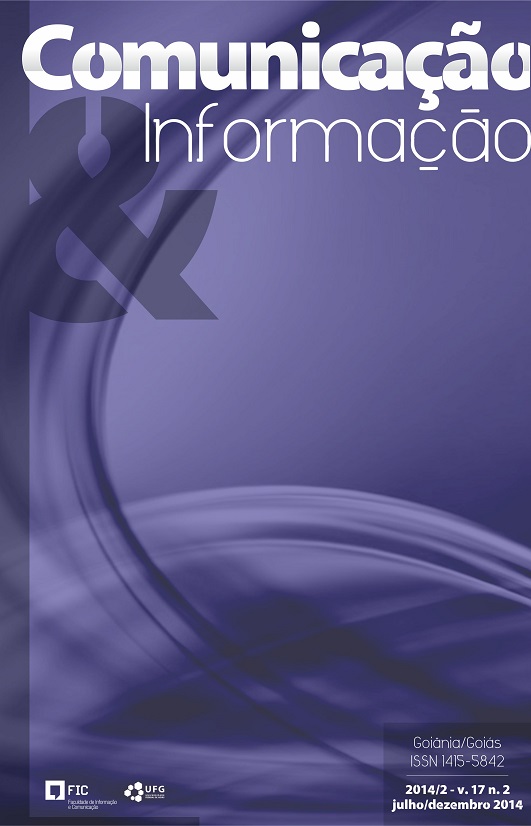Critical education with information and communication technology: a qualitative research design model
DOI:
https://doi.org/10.5216/31836Keywords:
Qualitative methodology. Critical thinking. Information and Communication Technology. Science Education. WebQDA.Abstract
From a social criticism standpoint, the study deals with future teachers education for a critical and creative appropriation of ICT as a pedagogical tool. On this sense, the article parallels the theoretical framework adopted (Media Education perspective, Critical Theory and Paulo Freire's problematization method) with the current challenges faced on Science teaching. An empirical model was developed to analyze a course in both dimensions: the discipline (learning perspective) and the meta-discipline (teaching planning). The instrument uses categories of analysis such as context, dialogue, reflection and action and WebQDA as a resource for qualitative analysis. As a result, the investigation contributes to the exploration of teaching practices through qualitative research, while is able to confirm the hypothesis of the discipline as a relevant space for critical formation of future teachers.
Downloads
References
BELLONI, Maria L.O que é mídia-educação. 2. ed. Campinas, São Paulo: Autores Associados, 2005.
BONILLA, M.H.; PRETTO, N. Inclusão digital. Polêmicacontemporânea. Salvador: EDUFBA, 2011.
FANTIN, Monica. Mídia-Educação:conceitos, experiências, diálogos Brasil-Itália. Florianópolis: Cidade Futura, 2006.
FREIRE, PAULO. Educação como prática para a liberdade. 14. ed. Rio de Janeiro. Paz e Terra, 2011.
FREIRE, PAULO. Pedagogia do oprimido. 50. ed. Rio de Janeiro. Paz e Terra, 2011b.
GIROUX, Henry. Os professores como intelectuais: rumo a umapedagogia crítica da aprendizagem. Porto Alegre: Artmed, 1997.
KELLNER, Douglas. A cultura da mídia:estudosculturais: identidade e política entre o moderno e o pós-moderno. Bauru: EDUSC, 2001.
MARTÍN-BARBERO, J. Oficio do cartógrafo: travessias latino-americanas da comunicação na cultura. São Paulo: Loyola, 2004.
PRETTO, Nelson De Lucca. Reflexões:ativismo, redes sociais e educação. Salvador: EDUFBA, 2013.
RÜDIGER, Francisco. As teorias da cibercultura: perspectivas, questões e autores. Porto Alegre: Sulina, 2011.
Published
How to Cite
Issue
Section
License
Os autores dos trabalhos publicados na revista Comunicação e Informação retêm os direitos autorais sem restrições e concedem à revista o direito de primeira publicação, com o trabalho simultâneo licenciado sob a Licença Creative Commons Atribuição-NãoComercial que permite o compartilhamento do trabalho para fins não comerciais com reconhecimento da autoria e o privilégio de publicação primeiramente por esta revista. Caso o texto venha a ser publicado posteriormente em outro veículo, solicita-se aos autores informar que o mesmo foi originalmente publicado como artigo na revista Perspectiva, bem como citar as referências bibliográficas completas dessa publicação.
Os direitos autorais dos artigos pertencem aos autores e o conteúdo dos artigos assinados é de responsabilidade exclusiva dos autores.
A revista se reserva o direito de efetuar, nos originais, alterações de ordem normativa, ortográfica e gramatical, com o intuito de manter o padrão culto da língua, respeitando, porém, o estilo dos autores.
A revista também se reserva o direito de traduzir o artigo, no todo ou em parte, para o inglês ou para o português, dependendo do idioma em que o artigo tenha sido escrito originalmente.



